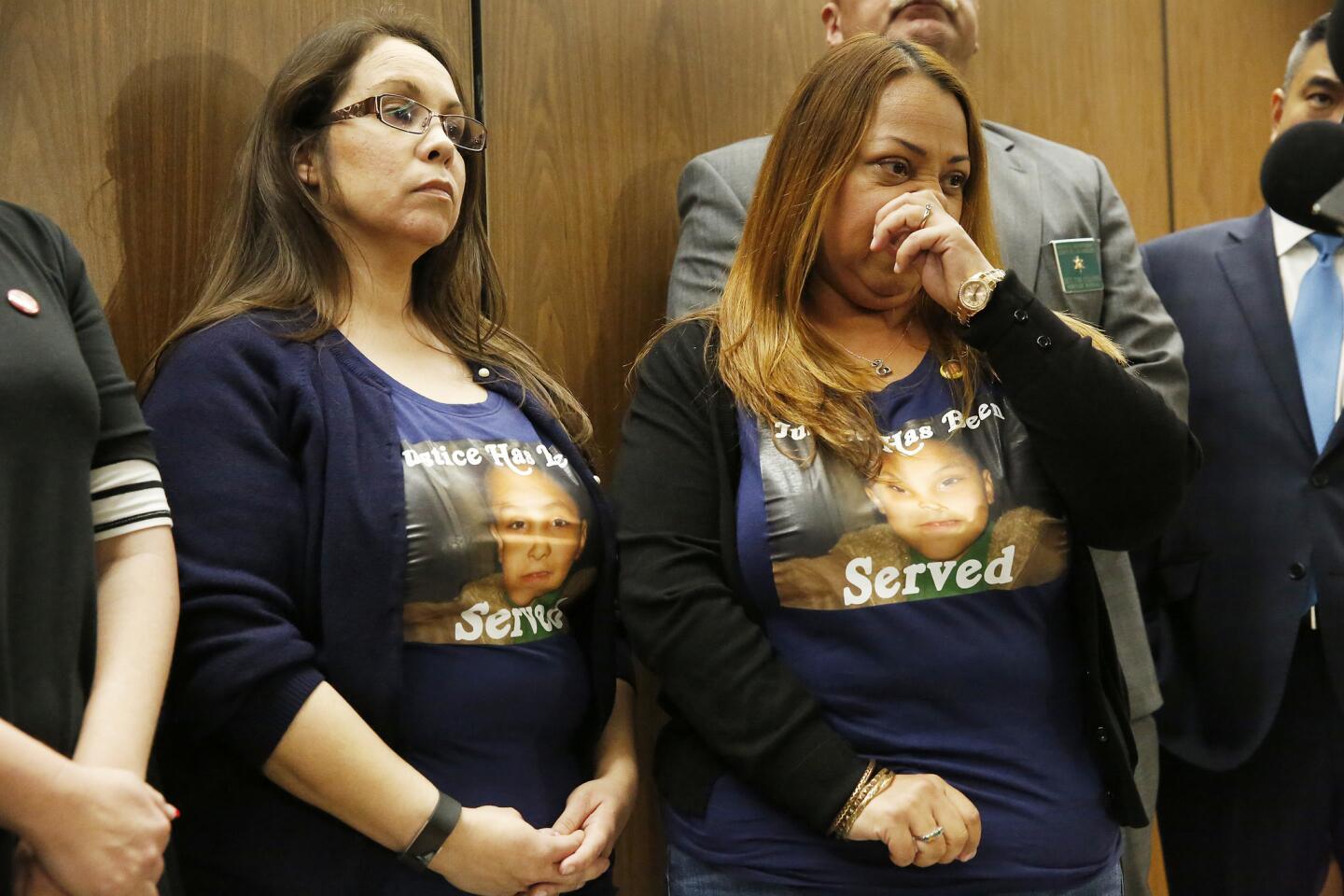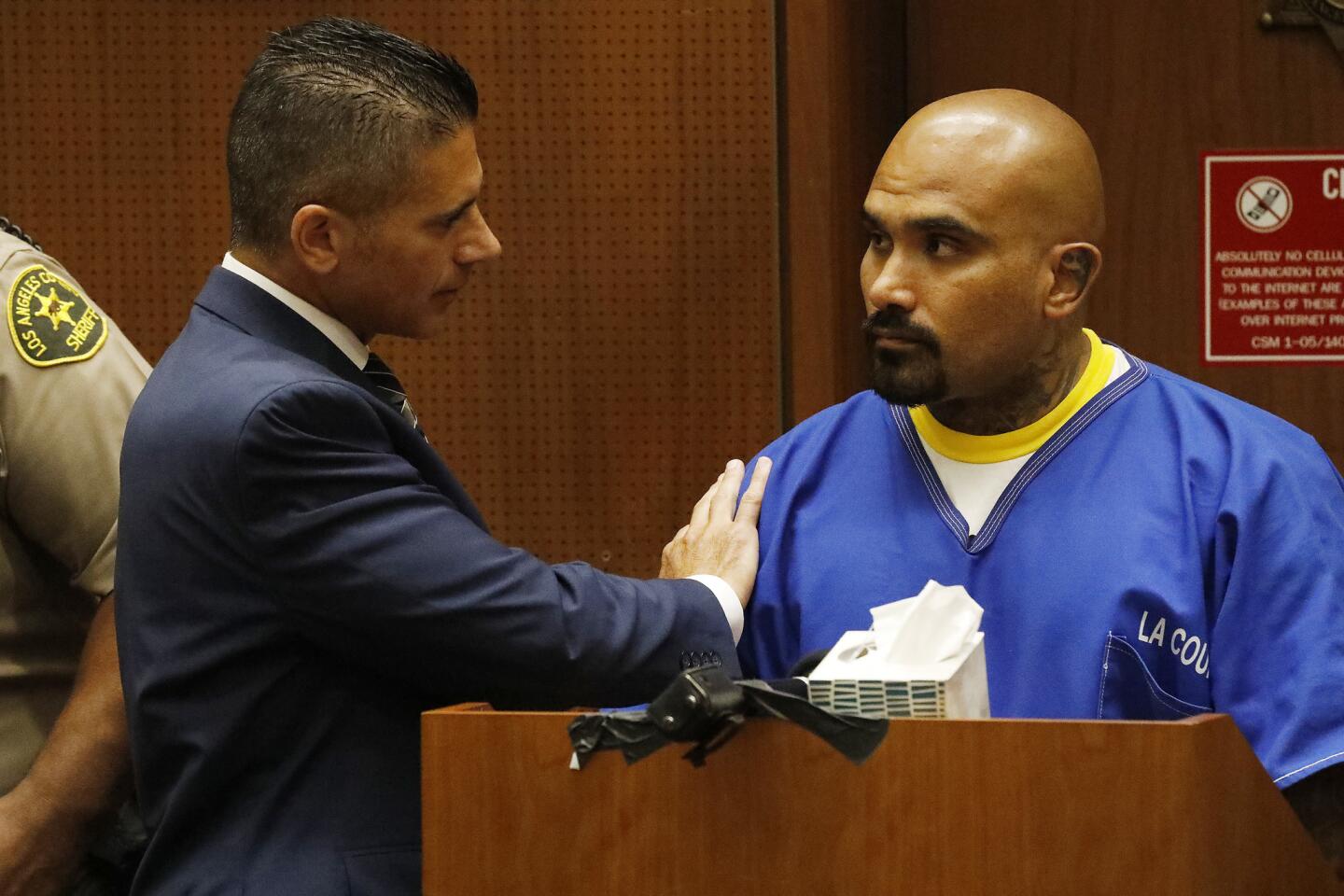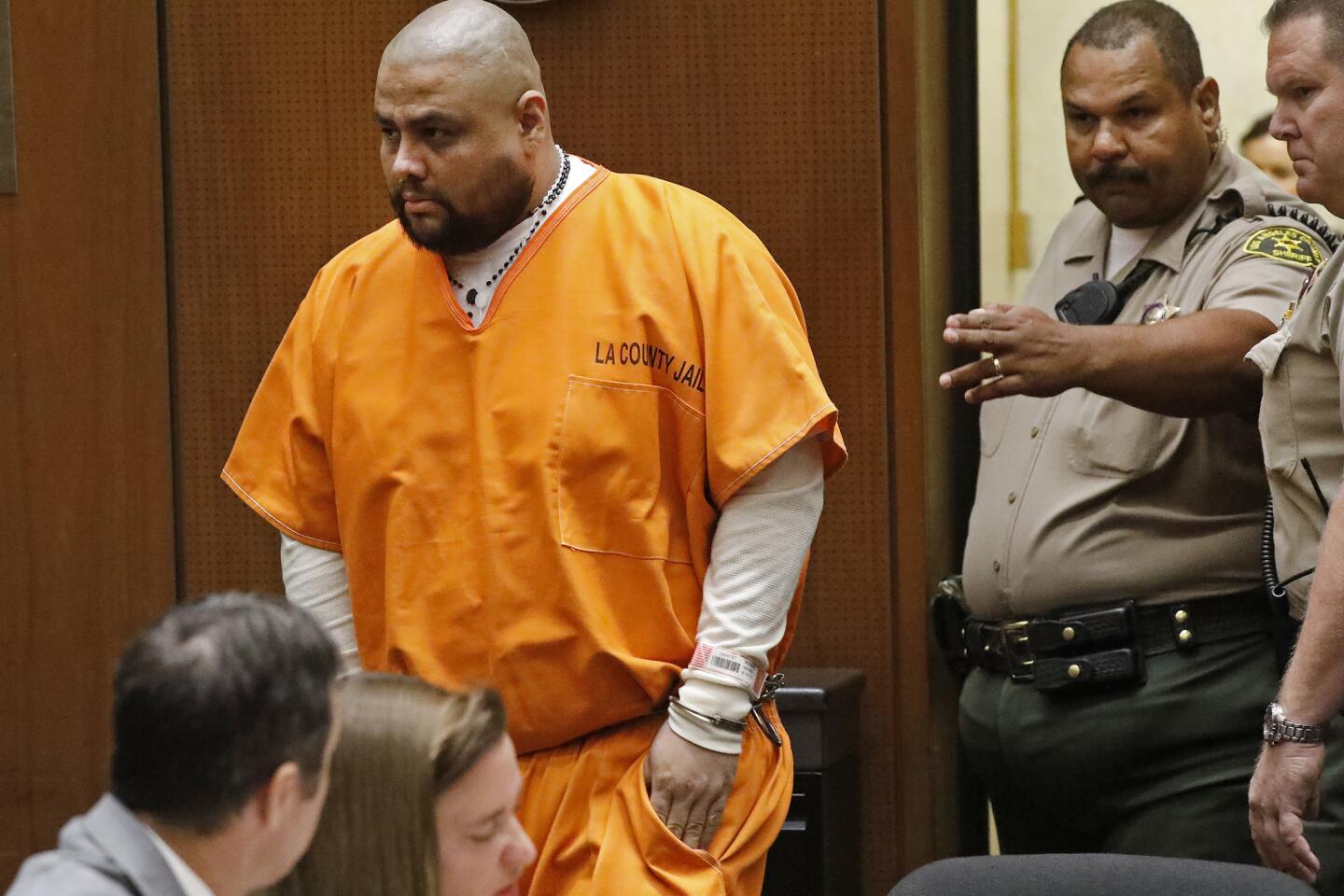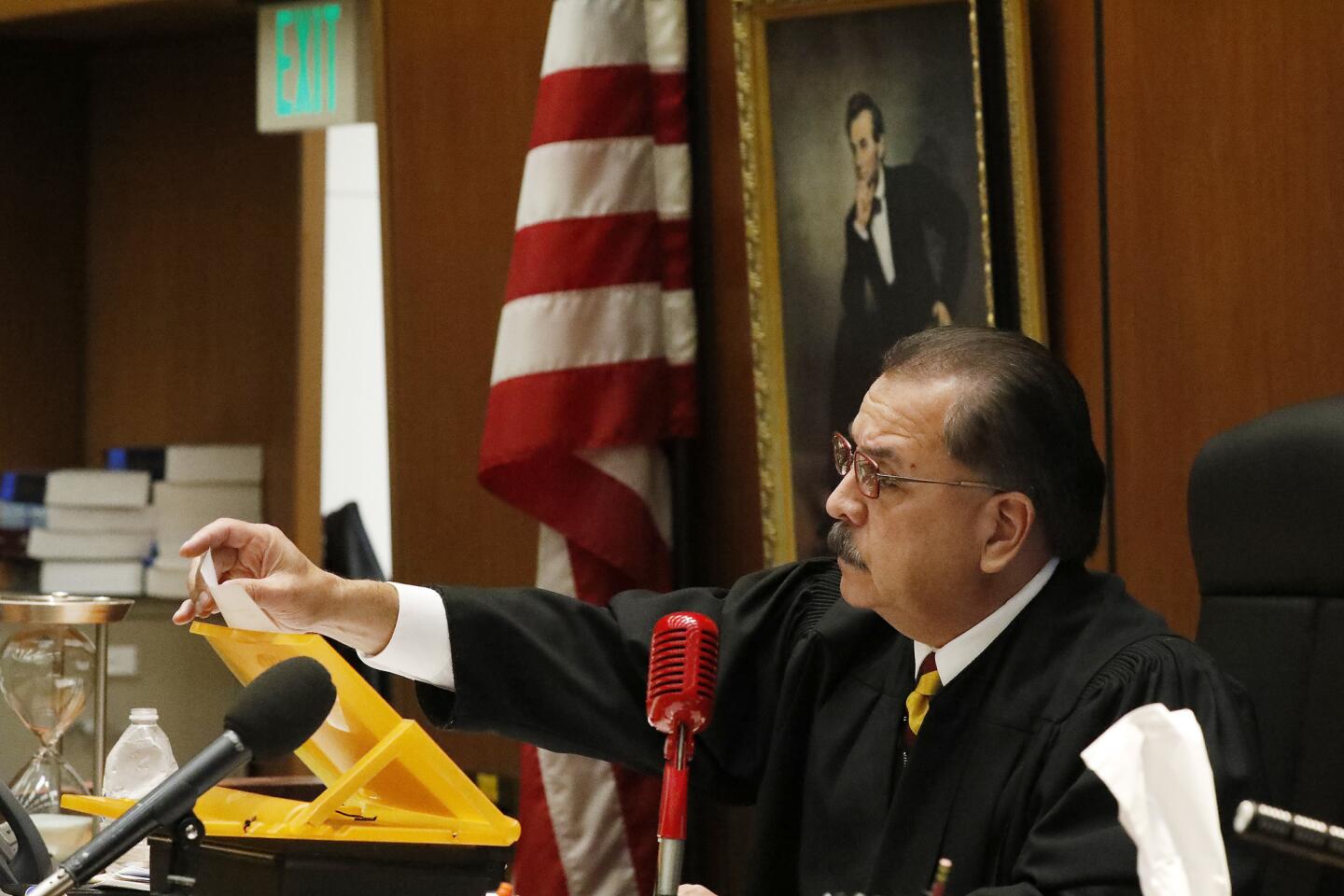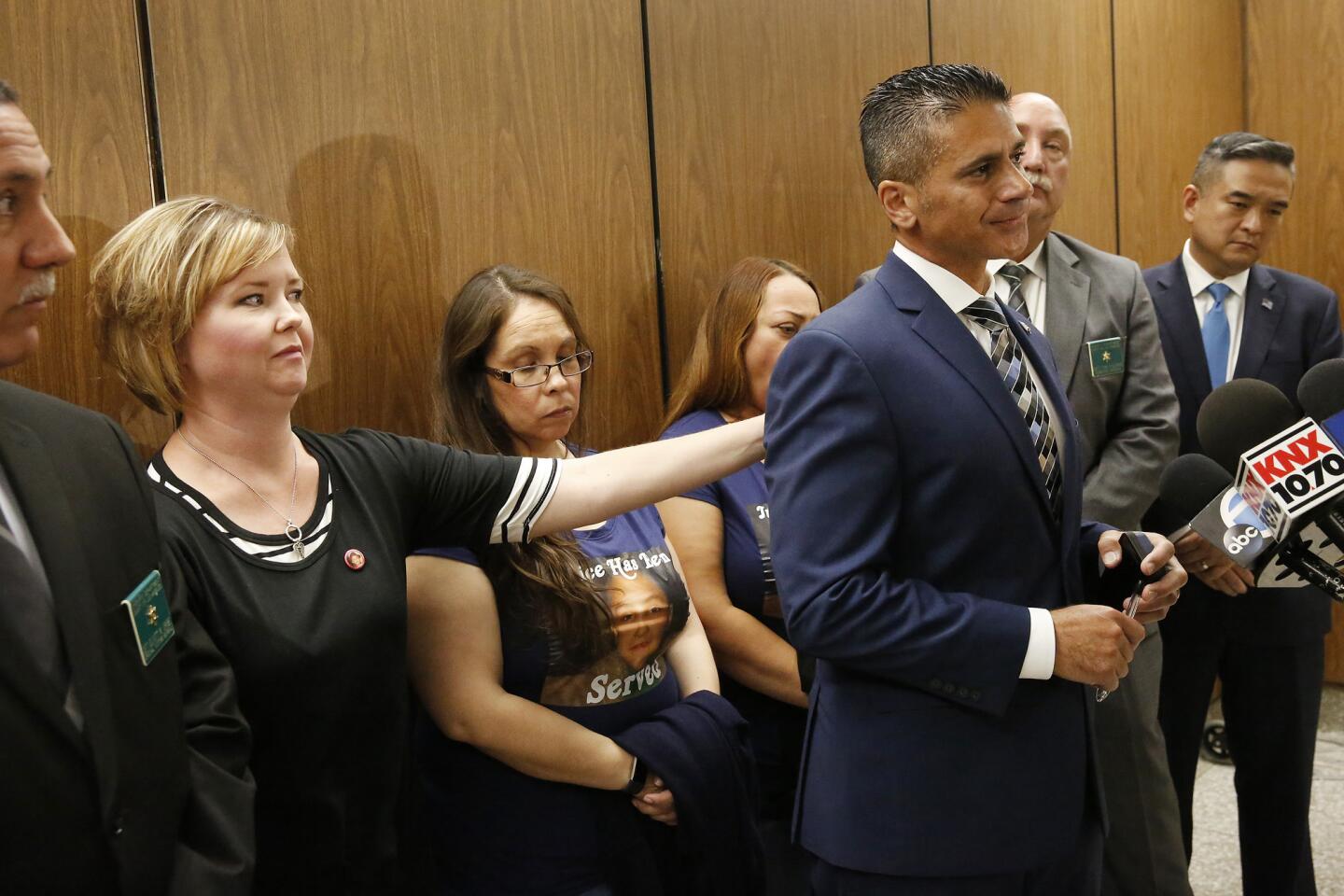âNothing short of evilâ: Judge sentences mother to life in prison and her boyfriend to death in Gabriel Fernandez murder case
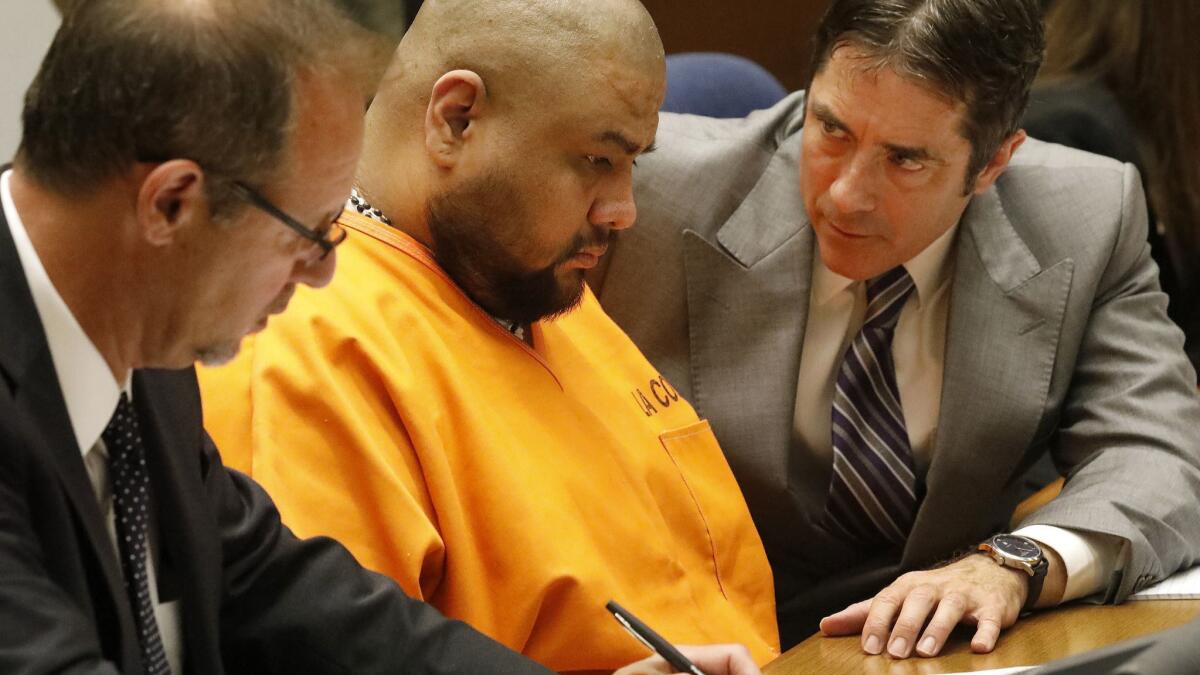
Jennifer Garcia canât keep her mind from drifting to little Gabriel.
Late at night and in the silence of her early morning drives, the first-grade teacher thinks of her former student. She assigns each child in her classroom a number â he was No. 28. She tries to focus on his kindness â on the times he offered to help her staple homework packets and tutor his classmates. She tells her new students about him, explaining when she assigns numbers why she now skips 28.
She had repeatedly reported signs of abuse but still wonders whether she could have done more to help save Gabriel. When the familiar pit returns to her stomach, she bubbles with anger. She thinks of the people convicted of torturing and murdering Gabriel â the boyâs mother, Pearl Sinthia Fernandez, and her boyfriend, Isauro Aguirre.
âThey are evil,â Garcia said Thursday in a downtown Los Angeles courtroom as she glared at Fernandez, who sat stone-faced with her hands cuffed on her lap at the defense table. âI know whoâs truly to blame.â
The scene in the courtroom served as a dramatic coda to a tragedy that became a symbol of bureaucratic failure, propelled far-reaching reforms within L.A. Countyâs child welfare system and led to unprecedented criminal charges against social workers who handled the boyâs case.
At the end of the hearing Thursday, Superior Court Judge George G. Lomeli sentenced Fernandez, 34, to life in prison without parole and Aguirre, 37, to be executed for the 2013 torture killing of Fernandezâs 8-year-old son â abuse that the judge characterized as âhorrendous, inhumane and nothing short of evil.â It was the worst abuse heâd seen in nearly 20 years on the bench, he said, telling the defendants he hoped they woke up in the middle of the night plagued by their actions.
âI hope you think about the pain you caused this child and that it tortures you,â Lomeli said. âI rarely say that.â

During the hearing, several people in T-shirts bearing Gabrielâs face addressed the court. When Emily Carranza, Gabrielâs cousin, stood at the podium, Fernandez locked eyes with her.
âGabriel loved you,â Carranza said to her. âThe world fell in love with Gabriel as their own. Why couldnât you?â
Fernandez â who wore jail scrubs and a heavy coat of brown lipstick and eye shadow â struck a tone of contrition, and then blame.
âI want to say Iâm sorry to my family for what I didâŚ. I wish Gabriel was alive,â she said, adding that she felt that some people who had been vocal after the death were only interested in fame.
A volunteer jail chaplain told the judge sheâd prayed and studied the Bible recently with Fernandez.
âPearl has agreed and has acknowledged her part,â the chaplain said, as the mother nodded. âShe will have a void in her heart for the rest of her life.â
When paramedics arrived at the boyâs Palmdale home in May 2013, Gabriel had slipped out of consciousness. He had a fractured skull, broken ribs, burned skin, missing teeth and BB pellets embedded in his groin. A paramedic would later testify that every inch of the boyâs small body had been abused.
At Aguirreâs trial, Deputy Dist. Atty. Jonathan Hatami told jurors that the defendant had enjoyed tormenting the boy, forcing Gabriel to eat his own vomit and sleep in a cabinet with a sock gagging his mouth. The torture, Hatami said, stemmed from Aguirreâs hatred of Gabriel, who he suspected was gay.
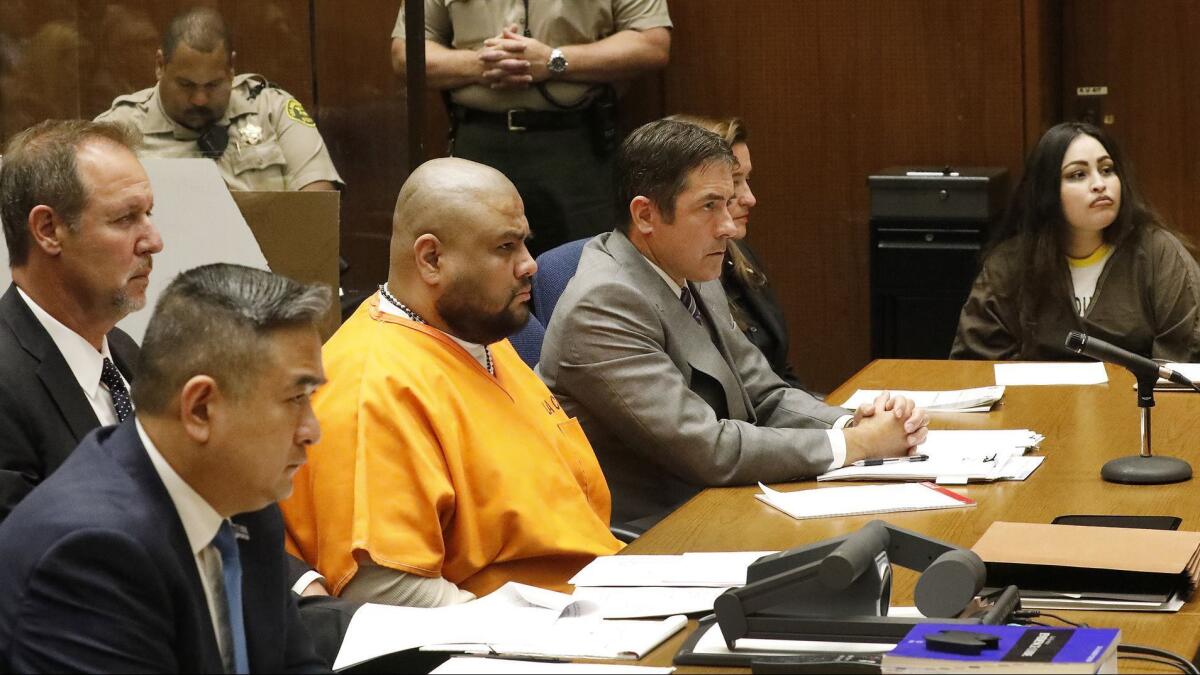
The boyâs slaying led to the appointment of a child protection czar, a series of child welfare reforms and criminal charges against L.A. County social workers who â despite six investigations into reports of abuse â allowed the boy to stay in the home with his mother and her boyfriend. Some sheriffâs deputies who visited the familyâs home in the months before the death were also disciplined for their handling of the case.
In February, Fernandez pleaded guilty to first-degree murder, admitting that her sonâs killing was intentional and involved the infliction of torture. By pleading guilty, she avoided a trial in which prosecutors were expected to seek the death penalty â a punishment that her defense attorney said wasnât appropriate given her low IQ.
Deborah S. Miora, a clinical and forensic neuropsychologist who evaluated Fernandez for the defense, determined she has an intellectual disability that makes her âvirtually unable to use thought to guide her behavior and temper her emotional reactions.â
Records show that when Fernandez took a cognitive ability test in 2011, she scored in the 3rd percentile in the verbal comprehension section, putting her at a second-grade level. In a report written by Miora, which relied, in part, on information from Fernandez, the clinician referred to Gabrielâs case as the âfirst serious offenseâ but noted Fernandez also had a misdemeanor domestic violence conviction from Texas.
Fernandezâs life, records show, was punctuated by acts of abuse and neglect.
As a child, her father cycled in and out of jail. Her mother â who Fernandez said hated her â often hit her and once flung her into the shower, according to Mioraâs report filed in court.
Although Fernandez fell far behind in school, academic records show she exhibited kindness and an effort to perform well. She started drinking and using methamphetamine at 9 and ran away from home at 11.
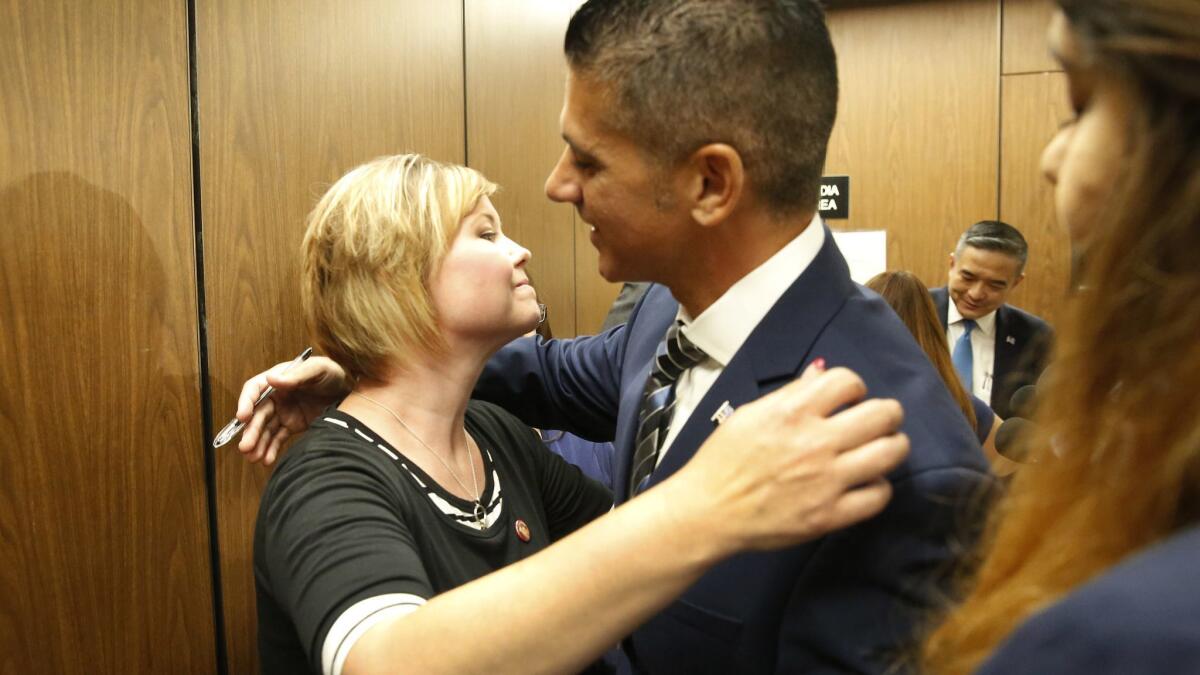
During her teenage years, Fernandez told the doctor, her uncle tried to rape her and a group of men held her hostage for several days and took turns raping her, according to Mioraâs report. Fernandez thought about committing suicide and spent time in the hospital.
Later in life, Fernandez said, several of her romantic partners, including Aguirre, struck her in the head. In one incident, she said, someone pistol-whipped her across the forehead.
In the months leading up to her sonâs death, Fernandez said, she was taking massive doses of opioid painkillers, including OxyContin and Norco.
In court Thursday, Deputy Public Defender Michael Sklar, who represented Aguirre, argued that sentencing his client to death was âgrossly disproportionateâ with his culpability.
A woman in the audience whispered, âAre you serious?â
Aguirre, a hulking man who worked as a caregiver for elderly people and according to his attorneys probably has a learning disability, sometimes scowled and often stared down at the defense table. He wore orange jail scrubs, and two plastic rosaries hung from his neck.
The judge â who rarely expresses opinions during sentencing hearings â said such a gruesome case âalmost demands a comment.â
Lomeli recited trial evidence that stuck with him â the defendants bashing Gabrielâs teeth out with a bat and shooting BB pellets at him. Some might call the abuse âanimalistic,â the judge said, but not even animals would do such a thing to their kin.
The judge recounted a story heâd seen on the news about a cat running into a burning home to rescue her kittens. Firefighters tried to stop her, but the cat ran in and out of the home several times. Each time she emerged, she held one of her kittens in her mouth by the scruff of their back. During the last rescue, the judge recounted, the fire singed the motherâs fur and burned her eyes.
âThe cat was now blind, but she never let go of that kitten,â Lomeli said, pausing. âNo, this is beyond animalistic.â
After the hearing, Garcia, the first-grade teacher, said the abuse against Gabriel opened her eyes and changed the way she views the world. Her students, she said, still find small ways to comfort her. Sometimes she overhears one of them say, âNo. 28, thatâs Gabrielâs number.â
Before the boyâs death, Garcia repeatedly reported signs of abuse to county child services workers, saying sheâd seen bruises on his face and learned that heâd been beaten with a belt buckle. She said she believes the entire system failed her student.
âThere were signs that were ignored. Why were they ignored? I donât know,â Garcia said, as her shoulders slumped. Nearby, stood several women wearing T-shirts reading âJustice Has Been Served.â The back of the shirts bore a message referring to the upcoming trial of the social workers who handled the boyâs case:
âWEâRE NOT DONE YET!â
For more news from the Los Angeles County courts, follow me on Twitter: @marisagerber.
UPDATES:
2:45 p.m.: This article was updated with additional comments from Garcia and details from the court hearing.
12:25 p.m.: This article was updated with more details from the court hearing.
10:40 a.m.: This article was updated with more details from the court hearing.
10:05 a.m.: This article was updated with the sentencing and comments from the judge during the hearing.
This article was originally published at 7 a.m.
More to Read
Sign up for Essential California
The most important California stories and recommendations in your inbox every morning.
You may occasionally receive promotional content from the Los Angeles Times.
